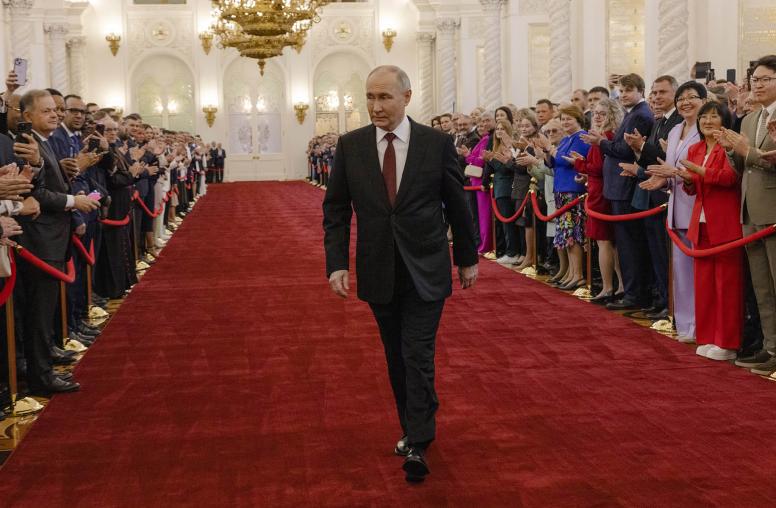Two Years In: Analyzing the War in Ukraine
February 24 marks two years since the beginning of Russia’s wider invasion of Ukraine and ten years from Russia’s illegal annexation of Crimea. Ukrainians have fought valiantly against the brutal onslaught, but two years on from the full invasion, Kyiv is facing equipment and manpower shortages — along with wavering international support for additional military and financial aid.
On February 27, USIP and the Atlantic Council hosted a discussion with former U.S. ambassadors to Ukraine and Russia analyzing the current battlefield situation, the importance of Western aid and the disastrous consequences that would result without it, and what can be done to secure Ukraine and its democracy long term.
Continue the conversation on social media using the hashtag #UkraineUSIP.
Speakers
Lise Grande, opening remarks
President and CEO, U.S. Institute of Peace
Denys Sienik, opening remarks
Deputy Chief of Mission of the Embassy of Ukraine
Ambassador John Herbst
Senior Director, Eurasia Center, Atlantic Council; Former U.S. Ambassador to Ukraine
Ambassador Steve Pifer
Senior Fellow, Brooking Institute; Former U.S. Ambassador to Ukraine
Ambassador John Tefft
Distinguished Chair, Diplomacy and Security, RAND Corporation; Former U.S. Ambassador to Russia
Ambassador Marie “Masha” Yovanovitch
Senior Advisor, Russia and Europe Center, U.S. Institute of Peace; Former U.S. Ambassador to Ukraine
Ambassador William Taylor, moderator
Vice President, Russia and Europe Center, U.S. Institute of Peace; Former U.S. Ambassador to Ukraine



